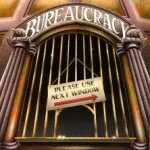
I recently started watching “House of Cards” on Netflix after receiving positive reviews from many friends and colleagues. It doesn’t take long to understand why this ground breaking series has won so many accolades — the writing is phenomenal and Kevin Spacey and Robin Wright are very well cast as House Majority Whip Frank Underwood and his wife Claire, the central characters to the story. And it got me to thinking about handling politics in business.
There is a good reason that everyone including our representatives in Washington DC are hooked on the show. Politics is certainly theater (“performance art” as Spacey points out), and in the case of “House of Cards,” the actions of Representative & Mrs. Frank Underwood and those connected to them are tremendously entertaining.
But just like we are seeing in real life, all of the subterfuge, horse trading and theater comes at the expense of actually getting things done in Washington. When you operate in a bubble, it quickly becomes easy to lose sight of why you are there in the first place, and after a while, what was once perhaps interesting or entertaining becomes frustratingly illogical (and exhausting), particularly to those viewing it from the outside.
Unfortunately “bubbles” don’t only exist in Washington and practicing the art of politics is not reserved for just Senators, Representatives and other public servants — it happens in business too. I have worked at startups, growing mid size companies, and large companies, and can say first hand that politics is simply unavoidable when you put individuals together to work as a group. Any leader who says “There are no politics in my organization” is either lying or extremely naive.
The inevitability of politics doesn’t mean it has to be accepted or encouraged in your business, however. Teams with strong leadership that are comprised of people with “the right kind of ambition” and who minimize the political behavior are the ones that get things done. These organizations are united in accomplishing a common goal and are not distracted by those of individuals, departments, or factions. In my experience, this is where the startup has the advantage — the smaller, more tightly knit the group, the easier it is to manage the different agendas. Everyone is so focused on iterating, shipping product, making quarterly revenue goals, meeting plan, etc. that when everything is always due yesterday, you simply do not have time for politics.
Unfortunately, as businesses grow, leadership and talent can become diluted. The urgency to get everything done yesterday can give way to the urgency to create a policy for everything. In the process, the common goal can become less visible to everyone and so people start to behave and make decisions for their own personal gain. Leaders worry less about meeting deadlines and more about getting “out maneuvered”. As a result, the organization ultimately values those that are able to “properly manage the system” more than those who actually get things done.
If this is your organization, all I can say is “welcome to the bubble, baby” — your very own “House of Cards”. While I love watching the show on Netflix, I can’t stand it in business. For me personally, a show like “Shark Tank” is more my speed.









